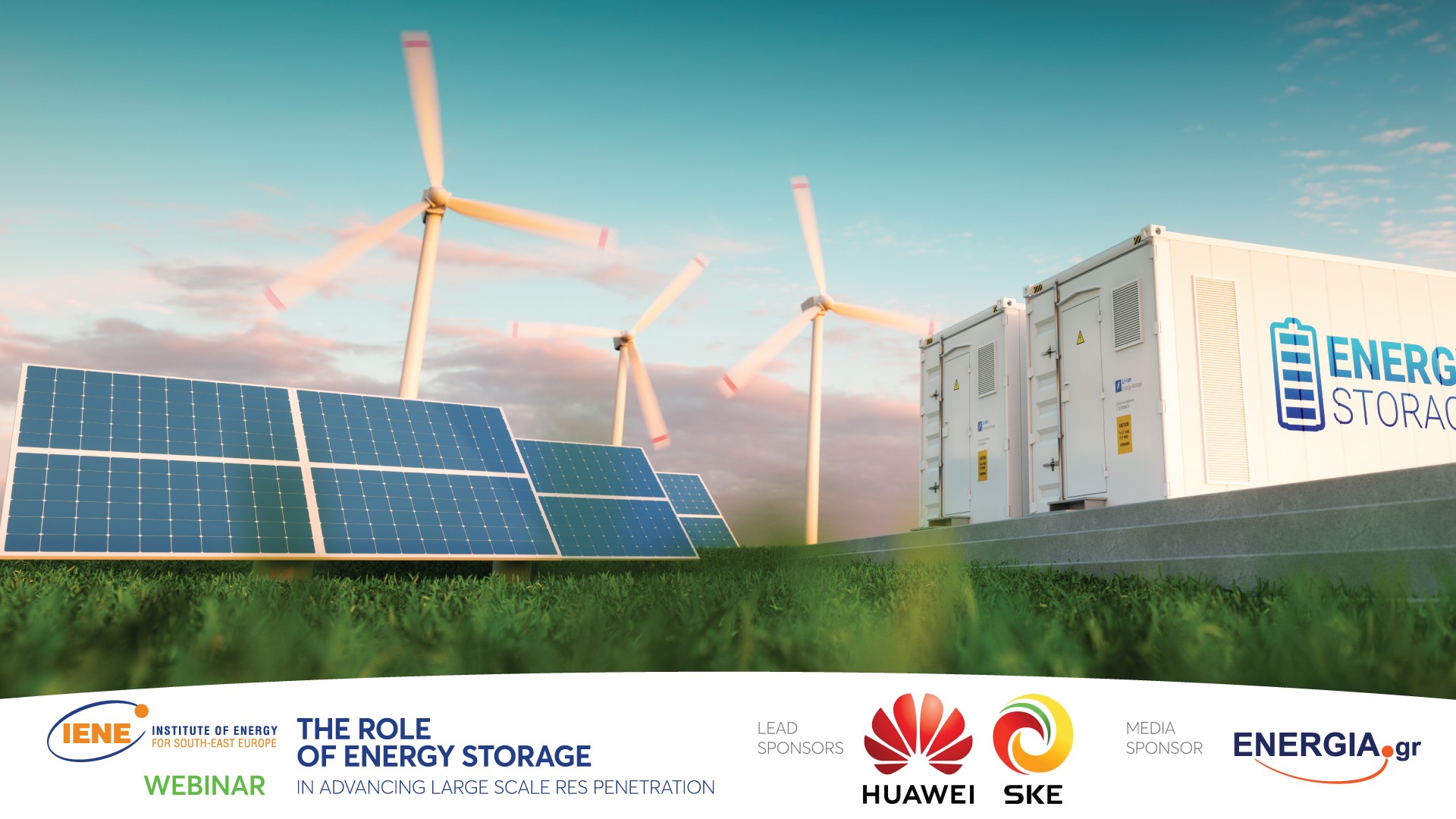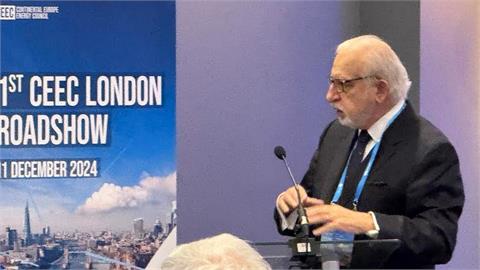The decisive role of energy storage in the penetration of Renewable Energy Sources (RES) in the electricity grid as well as in the Energy Transition was analyzed by more than 20 speakers from Greece and Europe who participated in the online Workshop on: “The Role of Energy Storage in Advancing Large Scale RES Penetration”, organized by IENE on April 27, 2021 with HUAWEI and SKE as Lead Sponsors.
Opening the Workshop, the Chairman and Executive Director of IENE, Costis Stambolis, noted that energy storage is an area of growing interest not only for renewables but for the whole energy sector. "As variable energy sources become more widely available and their access to the grid is constantly rising in many countries and especially in Europe, energy storage plays a very critical and decisive role”, said IENE’s Chairman.
Taking the floor, Dr. Athanasios Dagoumas, President of the Energy Regulatory Authority (RAE) referred to the Community directive on common rules for the internal market in electricity and the European package "Clean Energy for all", but also to the initiatives of RAE for the promotion, for the first time in Greece, of central energy storage investments in the domestic electricity system. Dr. Dagoumas stressed the previous absence of a regulatory framework for respective installations and briefly presented the licensing procedures for the installation of large storage units with batteries.
Then followed the intervention of Yiannis Yiarentis, Chairman of the Board and CEO of the Operator of Renewable Energy Sources and Guarantees of Origin (DAPEEP). Yiannis Yiarentis focused on the three pillars of the national strategy for the Energy Transition, the target model, energy storage and hydrogen. According to Mr. Yiarentis, storage is a basic condition for the realization and promotion of the energy system of the future.
For his part, Pantelis Capros, Professor of Energy Economics of NTUA, Director of the E3M-Lab of the National Technical University of Athens and Chairman of the Scientific Council of IENE, stressed the strong relationship between RES with storage, both from a technological and technical point of view, as well as from an economic point of view. Furthermore, Prof. Capros noted that the goals for much greater installed storage capacity cannot be achieved with a single technology, but it requires a combination of all available technologies, such as pump storage, batteries, hydrogen, etc.
The 2nd session which followed on "Technology review and perspectives- Key issues for deployment at EU and SE European level", was moderated by Costas Theofylaktos, Secretary General of IENE. It was attended by Patrick Clerens, Secretary General European Association for the Storage of Energy (EASE), Brussels, Prof. Vesna Borozan, Head of Power Systems Department, University “Sts. Cyril and Methodius”, North Macedonia, Davor Bajs, Electricity Infrastructure Expert, Energy Community Secretariat, Vienna as well as Radoš Čabarkapa, Head of Division for support and energy planning analysis, Electricity Trading Department, EPS.
The third session of this timely IENE workshop was moderated by Andreas Petropouleas, Director of Energy Management, Elpedison & Chairman of the Electricity Committee of IENE, on "Energy storage as the main component of electricity grid operation" and was attended by Yioula Tsiknakou, Head of the Hydroelectric Projects Department of TERNA Energy, Sofia Siahou, Director of Engineering and Licensing Unit, Hydroelectric Projects Engineering Construction Dept. of PPC, Stamatis Asimis, Key Projects & New Technologies Manager Sunlight, Stelios Psomas, Advisor of HELAPCO and Dr. Eugenia Giannini, Lawyer, Law Firm E. Giannini and Associates and IENE Partner. The common characteristics between battery and pumped storage were outlined by the above panelists while Dr. Giannini discussed at length the terms and conditions for the creation of a regulatory framework for storage that is currently absent.
Ms. Sofia Siahou from PPC referred, among others, to the challenges arising from the current regulatory framework for the development of pumped storage, including the ownership regime, as in many markets pumped storage was developed under regulated market conditions. Stelios Psomas of HELAPCO spoke about a dynamic global market that is expected to exceed 1,000 gigawatts by 2040, while focusing on the costs that, as he said, are the key to the Energy Transition and gave the example of the cost of Li-ion batteries that has decreased by 97% compared to 1991.
The workshop ended with the fourth session moderated by Dr. Platon Baltas, Executive Director of EUDITI Ltd and Visiting Research Fellow of IENE, and focused on case studies of successful energy storage applications, smart grids, utility-scale storage and storage for island systems.
Participants included Aristotelis Chantavas, Head of Europe of Enel Green Power, Nikos Papapetrou, General Manager of the Renewable Energy Development and Storage Sector (RSD) of Mytilineos, Professor Ioannis K. Kaldellis Vice Rector for Research and Lifelong Learning University of West Attica (UNIWA), Dr. Michalis Karystianos, Director of System Studies and System Development at IPTO, and Alexandros Perellis, Research Fellow at IENE. Following closely the developments in this sector, IENE has contributed prepared relevant studies for the storage of electricity in islands in conjunction with the operation of hybrid systems. During the discussion, Mr. Chantavas stressed the importance of energy storage not only nationally but also at European level, while Mr. Papapetrou referred to the huge importance of storage as a key element for the spread of RES, calling it the "holy grail” of the energy sector today.




